176. Of the Son of a Certain Old Man and a Lion
A certain elderly man had an only son of a generous spirit, and a lover of hunting-dogs. He had seen him in a dream to be killed by a lion. Therefore afraid, lest by chance sometime the event should follow this dream, he built a certain very fine and very pleasant house, bringing his son thither, a daily guardian was present to him. He had painted in the house every kind of animals for the delight of his son, with which also a lion. The youth looking on these things contracted trouble by so much the more. But on a certain time, standing nearer to the lion, he said, "O most cruel wild beast, I am kept up in this house for a vain dream of my father: what shall I do to thee?" And so saying, he struck his hand on the wall, willing to pluck out the eye of the lion, and he hit it on a nail, which lay hid there, with which blow the hand rankled, and corruption grew beneath, and a fever followed, and in a short time he died. Thus the lion killed the youth, art of the father availing nothing.
Moral. This fable shows that no man is able to avoid those things which are to come.
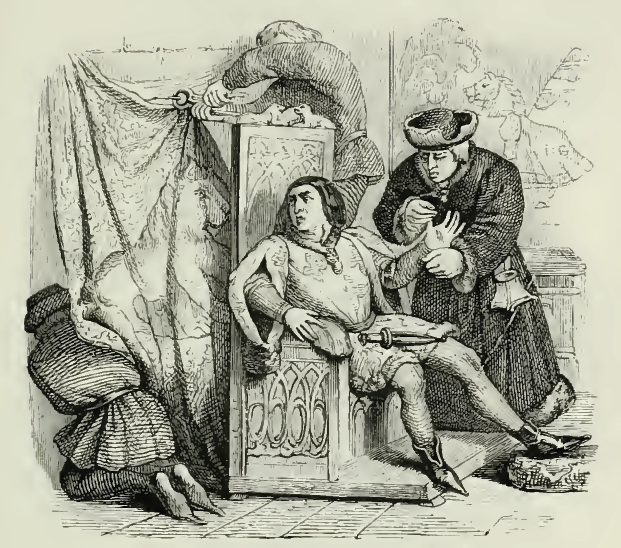
177. Of a Fox and a Bramble
A fox, when she was ascending a certain hedge that she might avoid a danger which she saw to hang over her, caught hold of a bramble with her paws, and pricked the hollow of her paw with the thorns, and when she was wounded grievously, she said, groaning, to the bramble, "When I had fled to thee that thou mightest have helped me, thou hast hurt me." To whom the bramble says, "O fox, thou hast erred who hast thought to take me with the like deceit with which thou hast used to take other things."
Moral. The fable signifies that it is a foolish thing to implore help from them to whom it is given by nature rather to hurt than to profit.
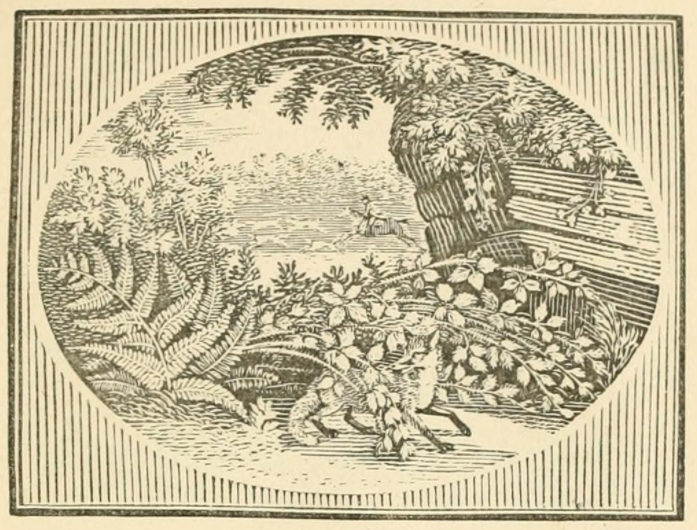
178. Of a Fox and a Crocodile
A fox and a crocodile contended concerning their nobility. When the crocodile adduced many things for himself and boasted himself beyond measure concerning the splendor of his ancestors; the fox smiling, said to him, "So ho, friend, although indeed thou hadst not said this, it appears clearly by thy skin that now many years thou hast been deprived of the splendor of thy ancestors."
Moral. The fable signifies that the thing itself chiefly refutes lying men.
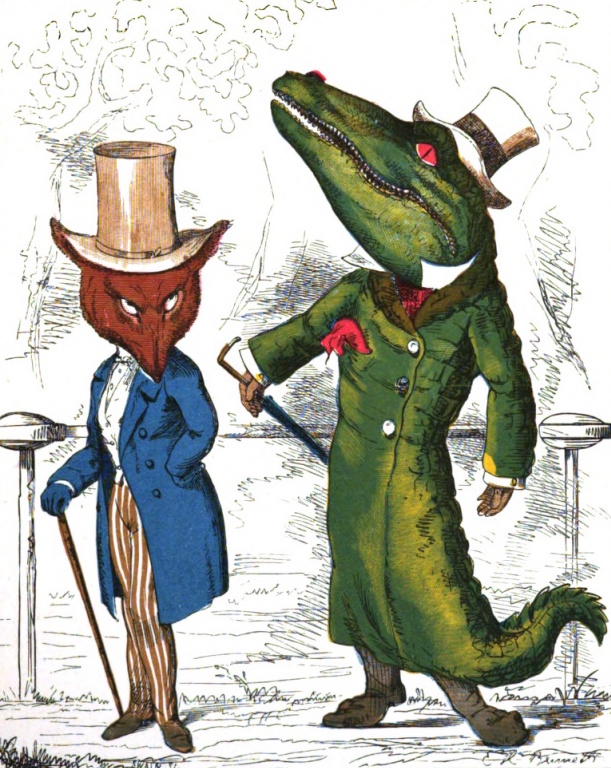
179. Of a Fox and Huntsmen
A fox, flying from huntsmen and now tired with running along the way, by chance found a woodcutter whom he asks that he may hide himself in any place. He showed the cottage; the fox entering it hides himself in a certain corner. The huntsmen come up, ask the woodcutter if he saw the fox. The woodcutter denies in words indeed that he had seen him, but he showed the place with his hand, where the fox lay hid, but the huntsmen, the thing not being perceived, immediately go away. The fox, as soon as he perceives them to be gone away, coming out of the cottage, retires silently. The woodcutter accuses the fox that when he had made him safe, he gave no thanks to him. Then the fox, turning himself says softly to him, "Hark ye, friend, if thou hadst had the works of thy hands, and thy morals like to thy words, I would pay the deserved thanks to thee."
Morale. The fable signifies that a wicked man, although eh promises good things, yet he performeth bad and wicked things.
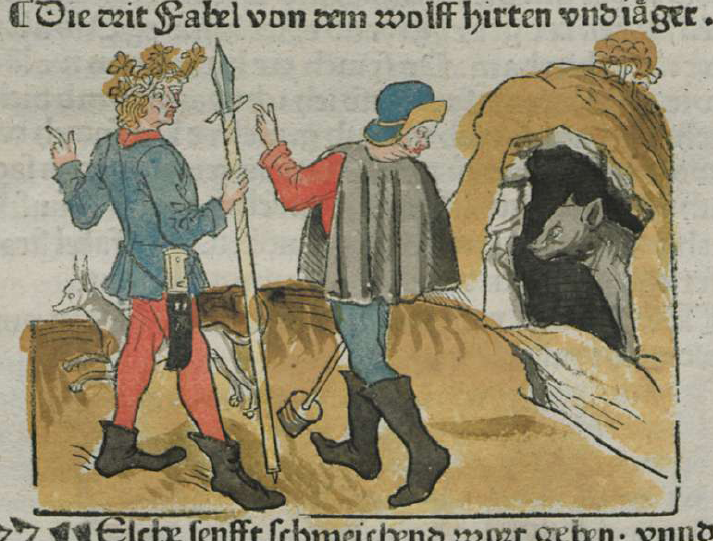
180. Of a Dog Invited to Supper
A certain man, when he had prepared a dainty supper, invited a certain friend home; his dog also invited the dog of the other man to supper. The dog, having entered, when he saw so great dainties prepared, joyful, says with himself, "Truly I shall fill myself today that I shall not want to eat tomorrow." But the cook, seeing him, silent took him by the tail and, whirling him three and four times, threw him through the window. He amazed rising up from the ground, whilst he flies crying, the other dogs run up to him and ask how daintily he had supped, but he, languishing, says, "I have filled myself so with drink and dainties that when I came out, I saw not the way."
Moral. The fable signifies that many things fall between the cup and the lips.
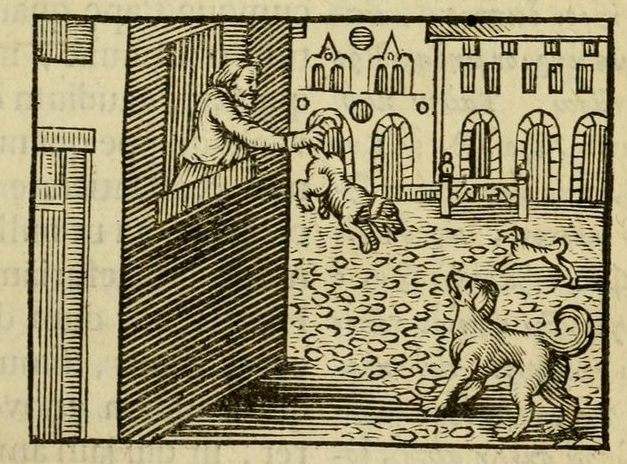
No comments:
Post a Comment
Comments are limited to Google accounts. You can also email me at laurakgibbs@gmail.com or find me at Twitter, @OnlineCrsLady.